Introduction
In the past, children used to play outside, sweat, get dirty, run in the sunshine, and even play in mud. They would fall, get minor scrapes, and face small challenges that made them physically and mentally stronger. Kids outdoor activities kept their bodies fit, boosted their immunity, and helped them develop healthy childhood habits. Outdoor play also allowed children to experience the benefits of playing outside, building strength and resilience naturally.
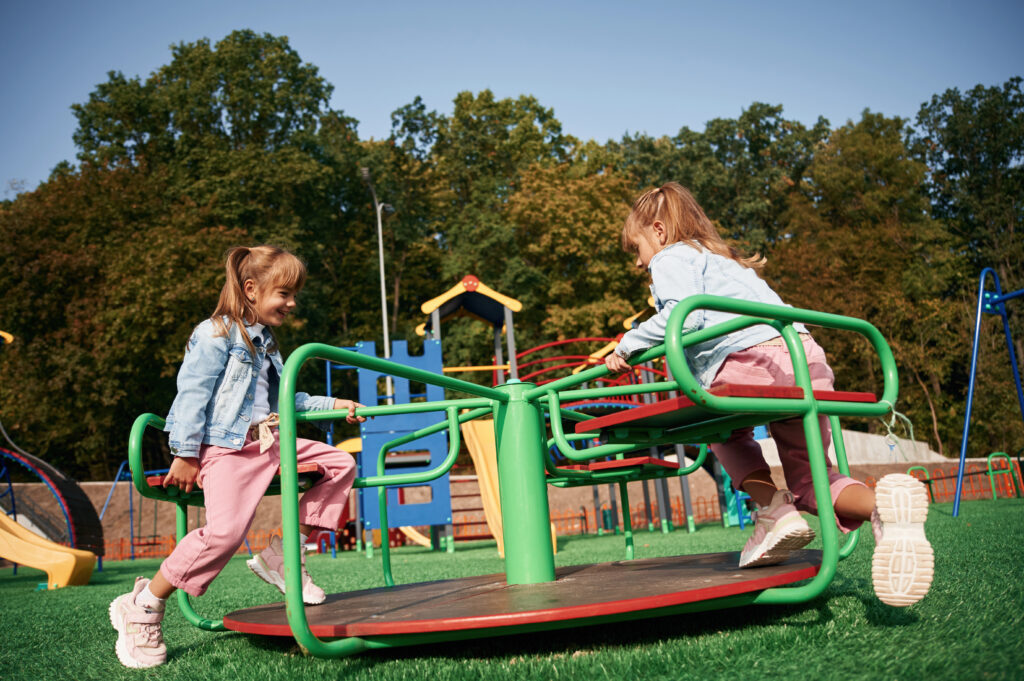
Nowadays, children prefer staying indoors, playing video games, scrolling on mobile phones, watching videos, or spending hours on social media. This shift has made many children physically weaker and less resilient. Even minor infections often require medication, and they struggle to walk for long periods or sit under the sun for any length of time. Excessive screen time is one of the main reasons parents need to reduce screen time for children to help them regain strength, energy, and real-world skills.
Changing Childhood Habits: From Outdoor Play to Screen Time
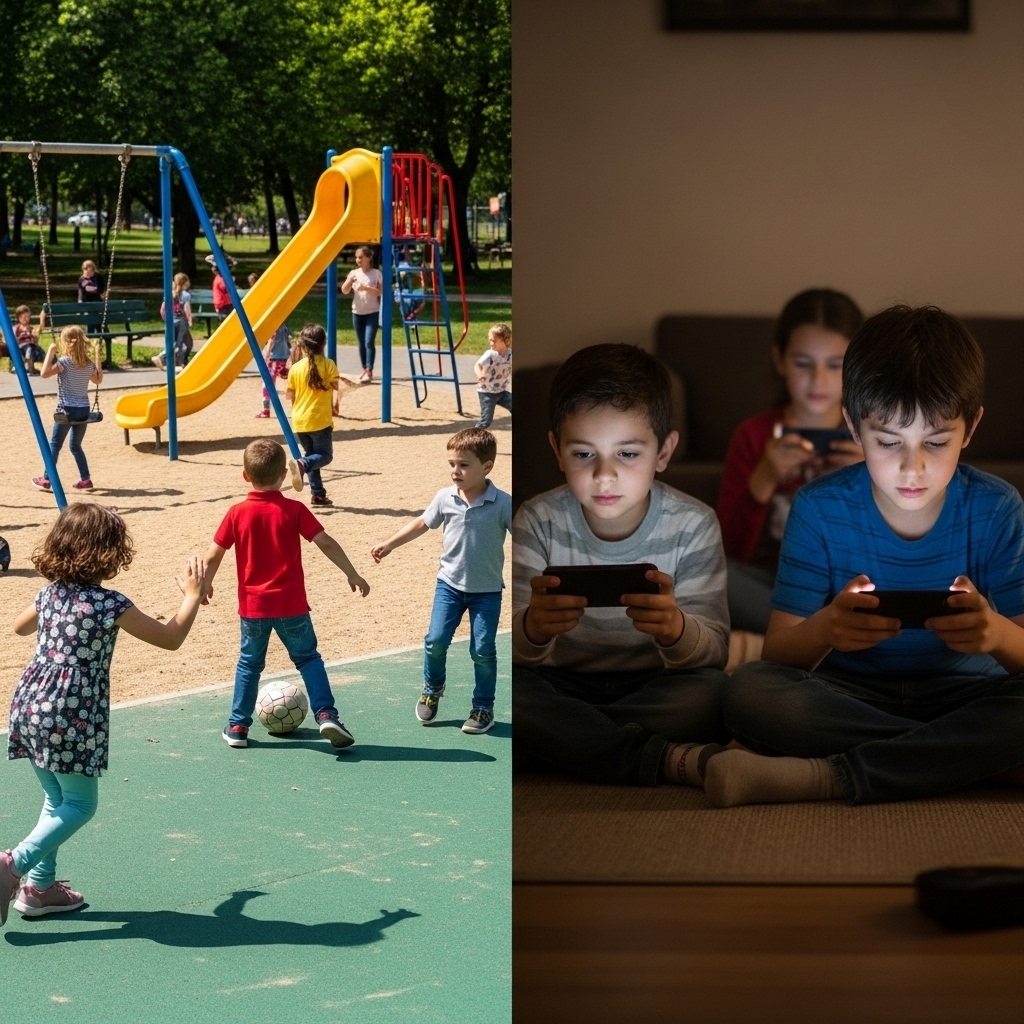
In the past, children loved outdoor activities that kept them active, energetic, and healthy. Running, jumping, climbing, and playing in open spaces not only improved their fitness but also taught teamwork, cooperation, and problem-solving skills—building both physical and mental strength.
Reading books and exploring new hobbies was a common way to spend free time. This helped children improve their knowledge, imagination, and creativity, forming part of their healthy childhood habits.
Friendships were built through real-life interactions. Sitting together, talking, and playing face-to-face helped children form stronger emotional bonds.
The benefits of playing outside went beyond physical fitness, also fostering social skills and emotional well-being.
Today, social interaction is mostly virtual, happening through online gaming chats, social media, and multiplayer platforms. While this allows children to connect globally, it often reduces real-world communication skills.
Spending excessive time on video games and screens also affects children’s study habits. Many neglect homework, reading, or other learning activities because they are too focused on completing game levels or winning matches. Parents are encouraged to reduce screen time for children and balance it with outdoor play, hobbies, and educational activities.
ust like children lose time on video games, many adults lose life chasing wealth. Please read our article Man Chases Money, But Death Chases Man
Video Games and Online Connections: A Balanced View
While video games can help children connect with friends online and sometimes teach teamwork, excessive gaming reduces opportunities for real-life social interactions and kids outdoor activities. Meeting friends online cannot replace the emotional and physical benefits of playing outside, which are essential for healthy childhood habits.
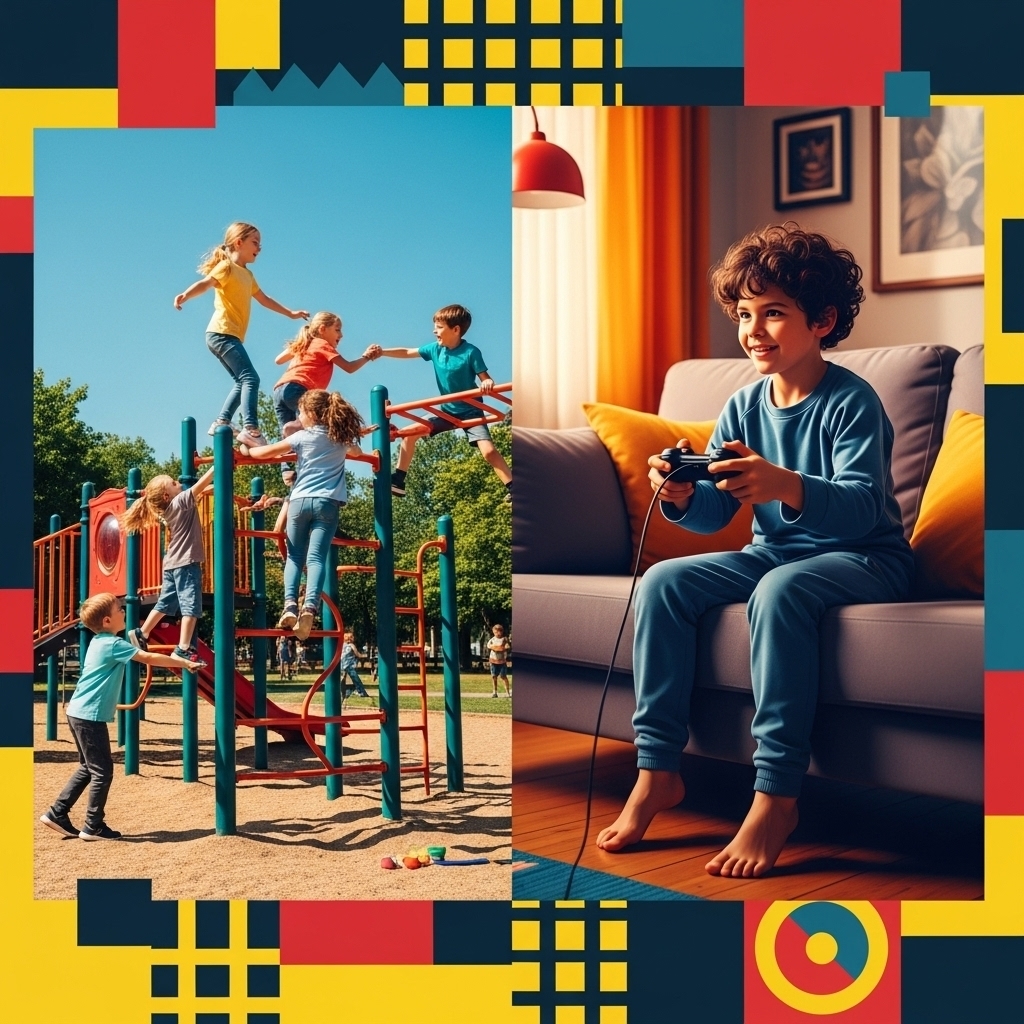
Today, many children spend almost the entire day playing video games, from morning until night. Even during meals or bedtime, they often cannot stay away from screens. This constant gaming reduces physical activity, limits exposure to sunlight, and prevents children from experiencing the benefits of playing outside.
Spending too much time on screens can lead to smartphone or console addiction, disrupt sleep, and affect concentration. Parents are encouraged to reduce screen time for children and help them balance gaming with outdoor play, hobbies, reading, and family time. A balanced approach ensures children grow stronger, healthier, and more socially connected.
🎮 When Parents Encourage Gaming Instead of Outdoor Play
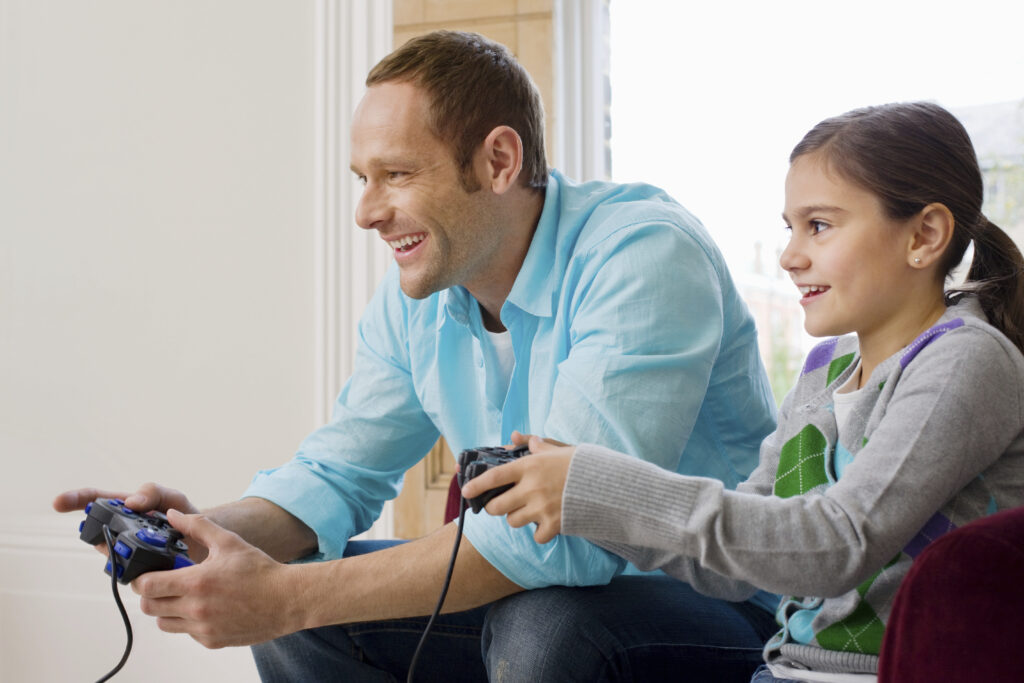
Instead of encouraging their children to play outside, some parents proudly share with friends and family how their child has reached the final stage of a video game in a short time. Even more concerning, some parents join their children in playing video games instead of promoting outdoor activities. While gaming can be fun, this behavior can lead to excessive screen time, reduced physical activity, and weaker social skills. Parents should remember that supporting outdoor play and hobbies helps children grow healthier, stronger, and more balanced.
⚠️ Dangerous Online Games: What to Avoid and Safer Alternatives
Recent reports have highlighted alarming cases where children have been influenced by online games and online challenges to engage in harmful behaviors. For instance, the infamous “Blue Whale Challenge” reportedly encouraged players to complete tasks leading to self-harm and, in some tragic cases, suicide. Similarly, the “Momo Challenge” involved disturbing tasks that frightened and manipulated children into dangerous actions. More recently, the “Blackout Challenge” on TikTok, which involves self-strangulation, has been linked to the deaths of at least twenty children.

Parents must be vigilant and proactive. It’s crucial to avoid games that promote violence, self-harm, or distressing content. Instead, encourage participation in games that promote creativity, teamwork, and positive social interactions. Games like “Minecraft,” “LEGO Worlds,” and “Animal Crossing” are excellent alternatives that foster imagination and cooperation in a safe, constructive environment.
Ultimately, the best defense is open communication. Monitor the games your children play, ensure they are age-appropriate, and regularly discuss the content they encounter online. These simple steps can help protect them from harmful influences and ensure their online experience is a positive one.
⚡ Challenges and Negative Effects of Video Games
Spending too much time on video games can negatively affect children’s health. Sitting for hours without moving can lead to poor posture, weak muscles, and even obesity.
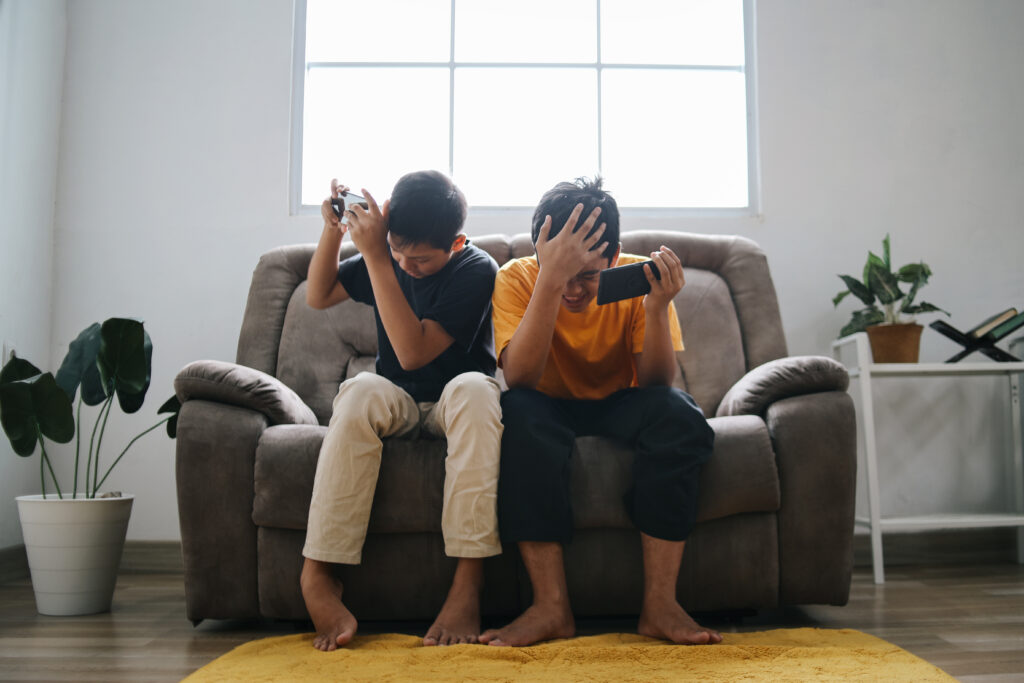
Excessive gaming often disrupts daily routines. Many children delay homework, skip meals, or ignore hobbies because they are focused on games. This affects their studies, physical health, and healthy childhood habits.
Video game addiction can also impact sleep. Children who play late into the night may feel tired, unfocused, and less energetic the next day.
Spending long hours on screens can reduce real-life social interactions. Children may prefer online friends over family and local friends, which can affect emotional growth and weaken connections built through kids outdoor activities.
Over time, constant gaming can make children less interested in real-life activities, reducing the benefits of playing outside and limiting opportunities to stay active, creative, and socially engaged. Parents should encourage breaks, outdoor play, and balanced routines to help children grow stronger, healthier, and more socially connected while enjoying gaming responsibly.
🕹️ The Rise of Video Games in Children’s Lives
Today, children spend most of their time playing video games, from the moment they wake up until bedtime. Phones and consoles are often in their hands, and completing levels or winning matches sometimes takes priority over homework, reading, or other activities.
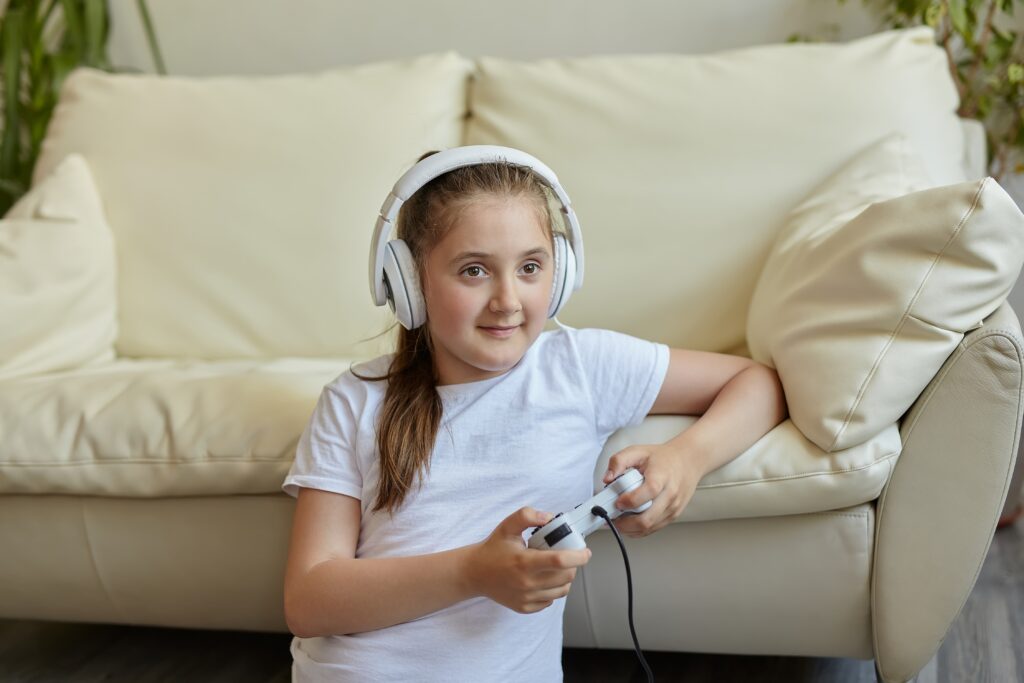
Earlier, children spent most of their time outdoors—running, climbing, playing tag, and exploring parks.
These outdoor activities helped children enjoy fresh air, stay active, and develop important physical, mental, and social skills, forming the foundation of healthy childhood habits.
Now, with more time spent indoors on screens, children miss the benefits of playing outside. Parents are encouraged to reduce screen time for children and help them balance gaming with outdoor play, hobbies, and family time to support their physical, mental, and social growth.
💪 Health and Lifestyle Effects of Video Games
Spending long hours on video games can impact children’s health and daily routines. Extended screen time weakens muscles, affects posture, and reduces time for kids outdoor activities, which are essential for fitness and energy.

Excessive gaming can disrupt sleep, leaving children tired, less focused, and less able to concentrate on studies or hobbies. It can also affect mental health, making children irritable, anxious, or frustrated if they lose a game or fail to reach certain levels.
Too much screen time strains the eyes and can cause headaches or blurred vision. It also limits real-life social interactions, as children may prefer online friends over family or local friends, affecting emotional growth and healthy childhood habits.
Parents can help by setting limits on gaming, encouraging breaks, and promoting outdoor play, sports, and hobbies. A balanced approach ensures children enjoy video games responsibly while maintaining physical, mental, and social well-being, and benefiting from the benefits of playing outside.
⚖️ Tips to Balance Gaming and Real Life
Children can enjoy video games without letting them take over their lives. Parents can set clear limits, such as allowing gaming only after completing homework or participating in kids outdoor activities. This helps children manage both fun and responsibilities while maintaining healthy childhood habits.
Mixing gaming with other hobbies and activities—like reading, drawing, sports, or learning new skills—supports mental and physical growth and ensures a balanced lifestyle. Spending quality time with family and friends is also essential. Playing games together, discussing favourite games, or enjoying kids outdoor activities as a family strengthens relationships and creates positive memories that online gaming cannot replace.
Quick Tips for Healthy Gaming:
- Limit gaming to 1–2 hours a day.
- Encourage kids outdoor activities and exercise.
- Combine gaming with hobbies like reading, drawing, or music.
- Schedule daily family time.
- Take breaks every 30–40 minutes while gaming.
🏃 Playing Outside vs. Playing Video Games
In the past, children loved spending time outdoors. Parks, playgrounds, and open spaces were full of laughter, activity, and adventure. Running, jumping, climbing, and playing in nature helped them stay strong, healthy, and full of energy.
Kids outdoor activities also supported social development. By playing with friends face-to-face, children learned teamwork, cooperation, problem-solving, and conflict resolution—skills that online gaming cannot fully provide.
The benefits of playing outside include fresh air, sunlight, exercise, and emotional well-being. These are essential for healthy childhood habits and cannot be replaced by video games, no matter how engaging or educational they seem.
Today, many children spend hours indoors on video games, phones, or consoles. While gaming can be fun and occasionally educational, it often reduces physical activity, limits social interaction, and increases screen time. Parents are encouraged to help children reduce screen time and balance gaming with outdoor play, hobbies, and family activities to ensure overall growth and well-being.
💤 Sleep and Gaming Habits
Playing video games late into the night can seriously affect children’s sleep patterns and overall health. Parents can help by setting limits on evening gaming, encouraging children to stop playing at least an hour before bedtime.
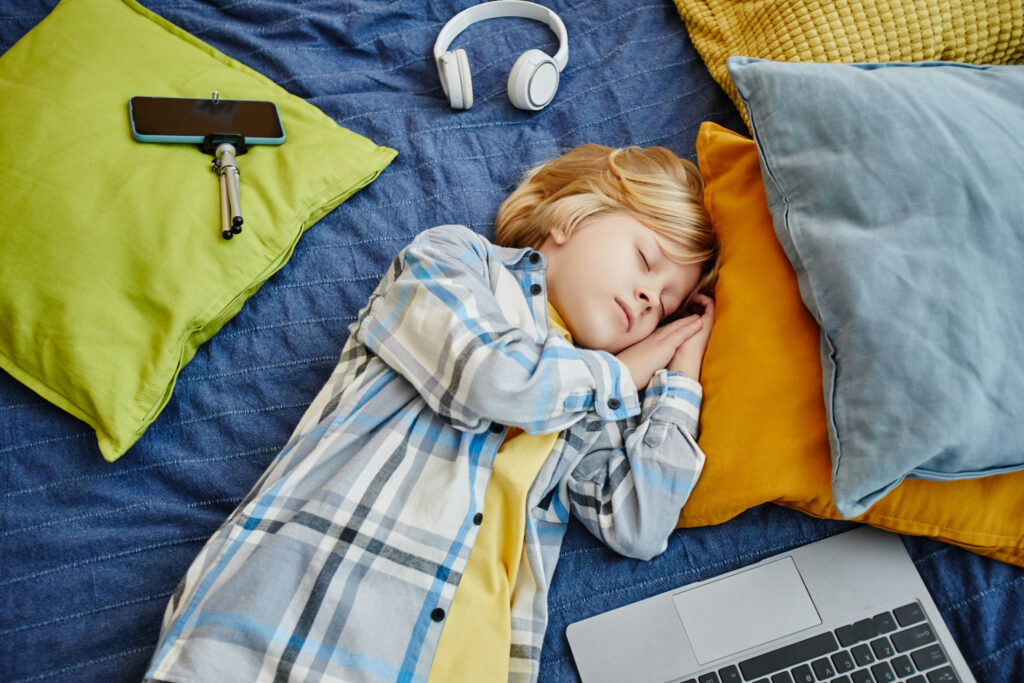
Balancing gaming with proper rest is essential for healthy childhood habits. Children who enjoy games but also prioritize sleep tend to have better focus, higher energy levels, and improved emotional stability throughout the day. Helping children reduce screen time for children in the evening ensures they get enough rest and stay healthy, both mentally and physically.
⏰ Screen Time Management
Managing screen time is essential for children to maintain healthy childhood habits while enjoying video games. Parents can set clear rules, such as allowing only 1–2 hours of gaming per day or letting children play only after completing homework and participating in kids outdoor activities.

Encouraging hobbies like reading, drawing, or sports alongside gaming helps children develop a balanced lifestyle. Teaching self-discipline and time management ensures that gaming remains fun without affecting physical health, mental growth, or social development. Proper screen time management also helps children reduce screen time and enjoy the benefits of playing outside, promoting overall well-being.
🏃 Outdoor vs. Indoor Activities
Outdoor activities have always been essential for children’s physical, mental, and emotional growth. Playing outside helps children stay active, build strong muscles, improve stamina, and develop healthy childhood habits.

Kids outdoor activities also encourage creativity, teamwork, and emotional well-being—benefits that video games cannot fully provide. While indoor gaming can be fun and occasionally educational, a balanced mix of outdoor play and gaming ensures children grow into strong, creative, and socially skilled individuals. Encouraging children to enjoy both indoor games and outdoor activities helps them reduce screen time, stay physically active, and reap the benefits of playing outside.
🚸 Tips for Parents to Monitor Gaming
Parents play a key role in helping children balance video games with real-life activities. Setting clear limits on daily gaming time, encouraging kids outdoor activities, and scheduling regular family time ensures children develop healthy childhood habits.
Discussing favourite games with children builds trust and strengthens relationships, while monitoring content prevents exposure to inappropriate material. Open conversations about gaming also teach children responsibility, self-discipline, and how to reduce screen time, promoting overall physical, mental, and social well-being.
Encouraging children to spend time on creative hobbies and learning new skills, rather than only playing video games, can help them develop talents and even turn passions into a career, as explained in our guide on turning your hobby into a career.
✅ Conclusion
Video games can be both fun and educational, but it is essential to balance gaming with kids outdoor activities, hobbies, family time, and proper sleep. Encouraging children to enjoy the benefits of playing outside while helping them reduce screen time promotes strong bodies, improved social skills, and overall healthy childhood habits. A balanced approach ensures children grow physically, mentally, and emotionally, making video games a positive part of their lives rather than a hindrance.
Frequently Asked Questions (FAQs)
1. How many hours per day should children play video games?
It’s best to limit gaming to 1–2 hours per day. This ensures children have enough time for homework, outdoor activities, and family interactions.
2. Can video games be educational?
Yes, many games improve problem-solving, memory, creativity, and strategic thinking. Choosing the right games is important for learning benefits.
3. How can parents monitor gaming effectively?
Parents can set rules, use parental controls, encourage breaks, and discuss games with children. This ensures safe and responsible gaming.
4. What are the negative effects of excessive gaming?
Too much gaming can cause sleep problems, poor posture, reduced physical activity, social isolation, and affect studies.
5. How can children balance gaming with studies and outdoor play?
By creating a daily schedule, setting limits, mixing hobbies with gaming, and prioritizing schoolwork, children can enjoy games without neglecting other responsibilities.
6. Can video games affect children’s social skills?
Yes, excessive gaming may reduce face-to-face interactions, but multiplayer and cooperative games can also help develop teamwork and online social skills.
7. Can video games replace kids outdoor activities?
No. While video games can be entertaining and sometimes educational, they cannot replace the benefits of playing outside. Outdoor activities help children stay active, build physical strength, and develop social and emotional skills.
8. How can parents encourage children to reduce screen time?
Parents can encourage kids outdoor activities, hobbies, and family time. Setting clear daily limits for gaming, offering fun alternatives, and rewarding outdoor play helps reduce screen time for children while promoting healthy childhood habits.
9. Do video games impact children’s physical health?
Yes, excessive gaming can lead to poor posture, weak muscles, and reduced physical activity. Balancing gaming with kids outdoor activities ensures children stay active, maintain fitness, and enjoy the benefits of playing outside.
10. What are the long-term benefits of limiting video game time?
Limiting gaming allows children to engage in kids outdoor activities, reading, and hobbies. This supports physical health, improves focus, strengthens social skills, and helps build healthy childhood habits that last a lifetime.
🌟 Best Wishes,
Syed Khaleelulla
Abyan — Student & 📸 Photo Support
🎮🏃 Inspiring Kids to Balance Gaming and Outdoor Fun

